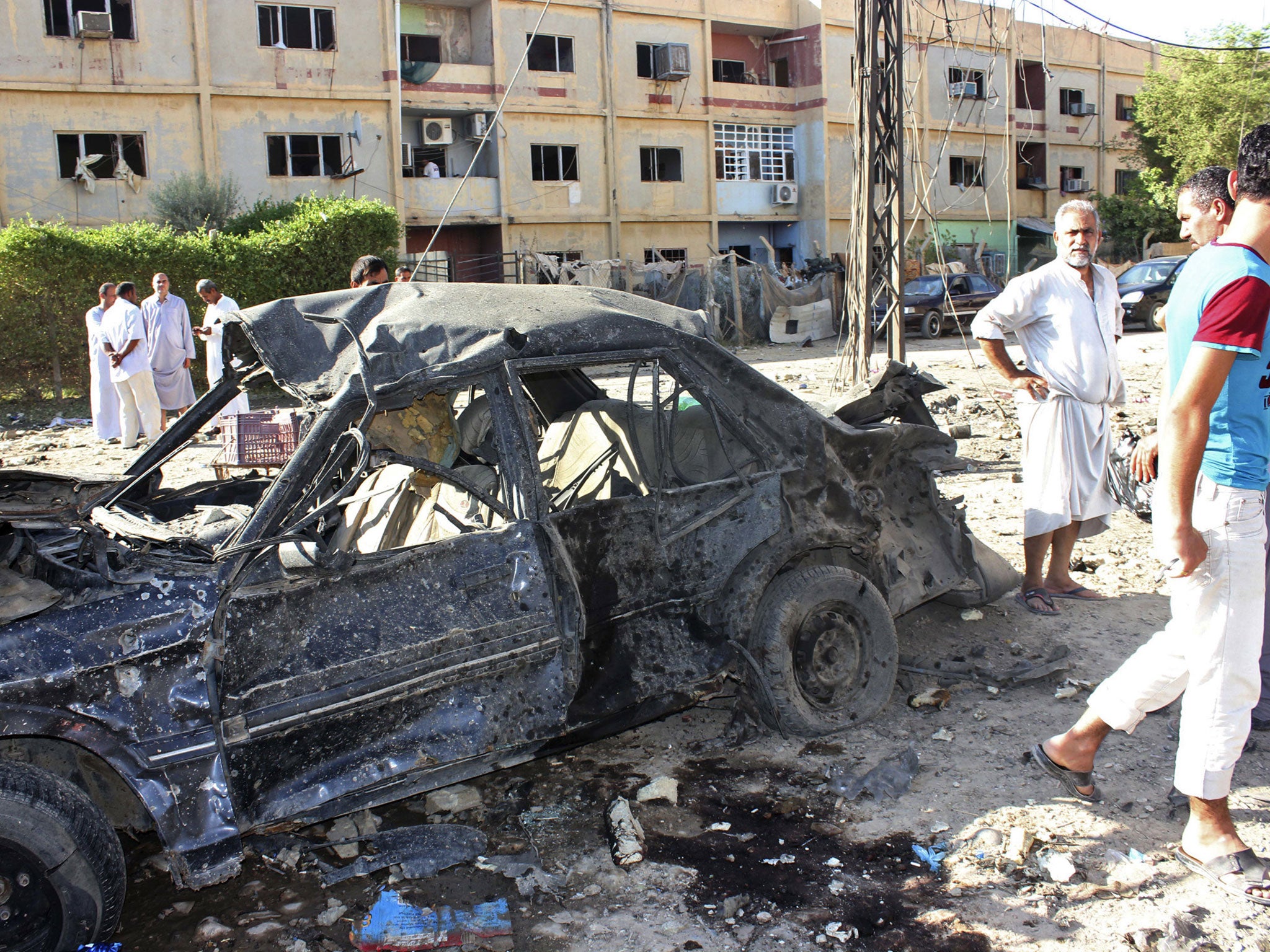Iraq's day of terror as at least 47 die in bombings and gun violence
Baghdad and Baquba were the worst hit areas of Sunday's attacks

Your support helps us to tell the story
From reproductive rights to climate change to Big Tech, The Independent is on the ground when the story is developing. Whether it's investigating the financials of Elon Musk's pro-Trump PAC or producing our latest documentary, 'The A Word', which shines a light on the American women fighting for reproductive rights, we know how important it is to parse out the facts from the messaging.
At such a critical moment in US history, we need reporters on the ground. Your donation allows us to keep sending journalists to speak to both sides of the story.
The Independent is trusted by Americans across the entire political spectrum. And unlike many other quality news outlets, we choose not to lock Americans out of our reporting and analysis with paywalls. We believe quality journalism should be available to everyone, paid for by those who can afford it.
Your support makes all the difference.A series of car bombs, roadside bombs and shootings killed at least 47 people in Iraq on Sunday, police and medical sources said, following the deadliest month since 2008.
The worst affected areas were the capital Baghdad and the city of Baquba, both shaken by numerous explosions.
The attacks came as tensions intensified between Sunni and Shi'ite Muslims across the Middle East.
Sunni Muslim insurgents and the al-Qa'ida-affiliated Islamic State of Iraq have significantly increased their attacks this year. More than 1,000 Iraqis were killed in July, the highest monthly death toll since 2008, according to the United Nations.
More than two years of civil war in neighbouring Syria have aggravated deep-rooted sectarian divisions and shaken Iraq's fragile coalition of Shi'ite, Kurdish and Sunni factions.
The renewed violence, eighteen months after the last US troops withdrew from Iraq, has sparked fears of a return to the scale sectarian slaughter in 2006 and 2007.
Iraqis have suffered extreme violence for years, but since the start of 2013 the intensity of attacks on civilians has dramatically increased. Bomb attacks have increasingly targeted cafes and other places where families gather, as well as the usual targets of military facilities and checkpoints.
The biggest of Sunday's attacks took place in central Baquba, 40 miles northeast of Baghdad when a car bomb blew up near a housing complex, killing at least 11 people and wounding 34, police said.
Earlier attacks included the killing of five soldiers in Qiyara town, some 180 miles north of the Iraqi capital, when suspected militants ambushed two taxis taking soldiers from Baghdad to join their units in Mosul, military sources said.
"One of the cars escaped the ambush but the second one could not and the militants shot dead five soldiers and burned their bodies after they killed them," a senior intelligence military officer, who declined to be named, said.
A medical source at the morgue in Mosul confirmed the soldiers' bodies had been burned.
Police said that seven people were also killed and 30 others were injured in two separate explosions in Madaen, about 20 miles southeast of Baghdad.
Another two explosions took place in commercial areas in western and northern Baghdad, killing 12 people and wounding 45, police and medical sources said.
A bomb stuck to a car killed three people and wounded four in eastern Baghdad, police and medical sources said.
Earlier on Sunday, police said three people were killed and 15 wounded when a car bomb exploded in Balad, 50 miles north of Baghdad. Two people were shot dead near their homes in eastern Mosul, 240 miles north of Baghdad, police said.
Roadside bombs also killed two members of a displaced Shi'ite family who had recently returned to their home. The attack wounded nine others in central Baquba, police said.
No group immediately claimed responsibility for Sunday's attacks but Sunni Islamist militants have been regaining momentum in their insurgency against the Shi'ite-led government in recent months, emboldened by the civil war in Syria.
At least 670 people are known to have died in Iraq as a result of violence during the Islamic holy month of Ramadan, which ended in early August.
Join our commenting forum
Join thought-provoking conversations, follow other Independent readers and see their replies
Comments